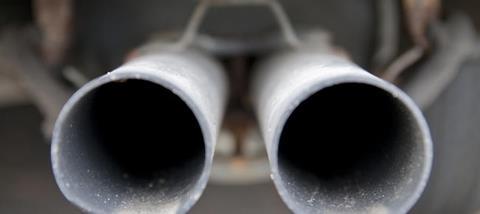
Analysts are comparing the scandal to the Libor Rate affair that rocked the London banking world in 2012. There are suggestions that the VW scandal may spread to other carmakers; that it will hit the German economy and that it may even dent the value of the Euro. With Grexit issues far from settled and an unprecedented refugee crisis rocking Europe, this is one headache Angela Merkel and her colleagues don't need.
At the heart of the VW scam is a dilemma facing large-scale industry across the world. If the only criteria of success is growth, and added shareholder value is its only measure, then executives and managers will always be tempted to cut moral corners.
Markets can never be morally neutral because human decisions are never made in a moral vacuum
We make an example of individuals when they're caught, but at the same time we continue in the folly of proclaiming the free market 'morally neutral'. Markets can never be morally neutral because human decisions are never made in a moral vacuum. Global markets are incredibly complex: but that doesn’t mean that they are not shaped by human choices. Unless we are prepared to apply to business ventures the added criteria of, for example, social solidarity, environmental impact and moral integrity, executives will continue to believe that all profit is good profit.
These criteria cannot simply be imposed by external rules. These, like drugs testing in athletics, will always be one step behind the technology and ingenuity of the cheats. Rather, new moral criteria can and must be written-in to executive contracts. Leadership involves responsibility, and no leader should be asked or encouraged to deliver growth at any cost. Why is it that those who suggest holding bankers, traders and global executives accountable to objective moral standards are more often ridiculed than listened to?
The truth is that we can develop more robust accountability in our business enterprises. There are two areas we can perhaps give attention to. The first is culture.
As management expert Jill Garret says, 'Culture eats strategy for breakfast'. Every leader should ask not only ‘what goals are we pursuing?’ but also ‘what culture are we creating?’ A culture of moral neutrality must be addressed and ultimately broken. Cheats cheat because they believe that the culture they are part of won’t stop them.
‘Everyone is doing it’ cannot be our defence
The second is the question of bench-marking. It is not enough to compare ourselves to others in the same field and say ‘at least we’re doing a little better than them’, or ‘at least we’re no worse then the average.’
Moral choices should be made against real, objective measures: against a code external to our industry that holds us genuinely accountable. ‘Everyone is doing it’ cannot be our defence. ‘Even if others do it, we won’t’ is a far more noble, and ultimately healthy stance.
Winterkorn has resigned, but it is the culture of VW, and perhaps even of the free market itself, that is in the dock.
To receive a free copy of Premier Christianity magazine click here



























